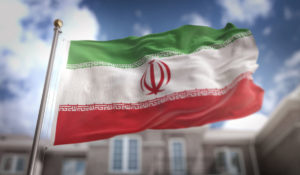Trump and His Lessons Unlearned

I have a hunch that the current administration is about to find out how challenging foreign policy can be. The hubris of being overly confident in their abilities to navigate these murky and complex waters, while being overly critical of Barack Obama’s foreign policy blunders, may soon come back to haunt them.
President Trump has recently thrown his full support behind those protesting in the streets of Iran without, I fear, fully understanding those whom are protesting, the myriad of reasons behind the protests, what outcomes protesters may desire, or what chaos may ensue if Iran is further destabilized as a result.
It’s been widely reported that the protesters are not a centrally organized group taking to the streets to achieve an agreed-upon set of demands.
No one is exactly sure how the protests began, but they are nothing like the 2009 election protests spurred on mostly by academics, university students, and the educated middle class. These were met with a brutal response by the Revolutionary Guard that involved mass arrests and torture. The Guardian has reported that several government sources believe this time the initial protests were sparked by supporters of Ebrahim Raisi, a radical Muslim cleric and bitter rival of the current moderate Iranian president, Hassan Rouhani. I understand how it may be difficult for us to believe that those in power in Iran today are actually the moderates, but that is in fact the case. This time the protests began mainly over economic strife, not election irregularities. Recent liberalization reforms have caused certain vital goods to drastically increase in price hitting the conservative working class Iranians particularly hard. These reforms, which would be supported by virtually every conservative American, have removed price controls, production quotas, and subsidies from large sectors of the market and produced a painful transitionary period in which Iran’s poorer citizens are struggling to provide the essentials for their families.
Others believe the MEK (Mujahedeen-e-Khalq) may be behind some of the protests. This is a cult-like Shia Islamic group that supported Iraq during the Iran-Iraq War, works for Israeli intelligence, and whose members are considered traitors by most Iranians. Although it sounds like they should be friends of ours, their history of assassinations and bombings resulted in them being labeled a terrorist organization until 2012. Also, they aren’t exactly ardent capitalists. They believe that imperialistic capitalism is the root of evil in the world and must be destroyed. (Imperialistic capitalists—now who does that sound like?)
So whatever destabilization results from these large and varied groups of protestors may not, in the end, result in an Iran with a favorable view of America or our global agenda. It likely wouldn’t result in a cohesive worldview of any sort. Does this sound a little like Libya to anyone? No? How about Syria? Libya was the result of a naive Obama believing nothing could be worse than Muammar Kaddafi. Syria was the result of a gun-shy Obama believing nothing could be worse than a chaotic Libya. Working-class people who win a violent revolution don’t tend to turn towards moderate intellectuals to lead them into a bright and progressive future. More often than not, they choose the ones who inspired them, zealots and extremists, religious clerics, and those promising a socialist utopia or a return to the demagogue days of the Shah.
This round of protests is also very isolationist in nature, with anti-Hezbollah and anti-Palestinian chants being heard in several cities. But don’t get too excited, this in no way means that it’s pro-Israel or pro-American. It’s just very much against spending Iranian treasure on anything that doesn’t directly benefit the Iranian people during hard times.
This might sound great for us and for Israel, but who it’s really a boon for is Saudi Arabia. What do you think will happen when that regional feud collapses and the very extremist Saudi Kingdom has undisputed control of the Middle East? Do you think Israel will be safer? Do you believe the Saudis will still be as inclined to assist us in our regional security aspirations? You shouldn’t.
This is what happens when there is an epic dearth of experience in the State Department due to unprecedented purges. This is what happens when amateurs have the hubris to believe life is simply black and white. Because of the benefit of hindsight, they believe that those who came before them were academic fools, and they feel certain that their decisions would have been different if they had been the decision maker. They foolheartedly support political actions without fully considering the order of effects that may result.
Trump may very well get his wish—regime change in Iran—but the result will very likely not be at all what he envisions.
